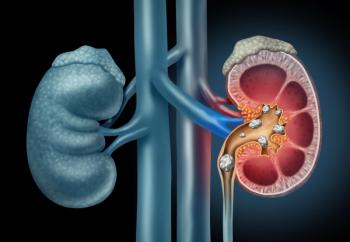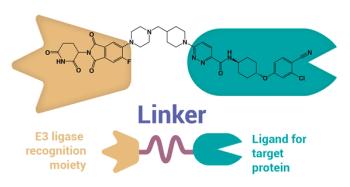
The therapeutic vaccine could provide patients with a non-surgical alternative to traditional treatment approaches.

The therapeutic vaccine could provide patients with a non-surgical alternative to traditional treatment approaches.

Proper nutrition and awareness of potential side effects from GLP-1 medications are essential for patients undergoing treatment.

Molly Schiffer, PharmD, BCOP, discusses the logistical and operational challenges of delivering outpatient CAR T-cell therapy, emphasizing the benefits of outpatient treatment, including reduced costs, improved access to therapy, and better quality of life for patients.


These findings can lay the foundation for the development of machine learning models in chronic kidney disease (CKD) and kidney failure.

Compared with other treatments for myasthenia gravis, nipocalimab demonstrated more significant improvements in disability scores, with tolerable safety.

Africa's unparalleled genetic diversity presents both a challenge and an opportunity to advance precision medicine, with a focus on leveraging pharmacogenetics to improve drug efficacy and reduce adverse reactions.

Catriona Jamieson, MD, PhD, discusses the role of stress-activated base editors like ADAR1p150 and APOBEC enzymes in cancer progression and highlights innovative approaches to halt these processes and improve therapeutic outcomes.

Age, body mass index, and male sex are also associated with the development of diabetes.

The decision offers patients with antimicrobial resistance, who have limited or no treatment options, a new alternative.

The quadruple treatment was active and safe as initial therapy for older patients with transplant-ineligible multiple myeloma.

New therapies are being developed for individuals with gout.

Ming-Hei Tai, PharmD, BCOP, shares his concerns about the AQUILA trial and use of daratumumab for smoldering multiple myeloma.

The prevention of preeclampsia may reduce severe maternal morbidity (SMM) risk in pregnant people.

The designation builds on previous regulatory action for ADI-001 and allows for expedited development of the treatment for systemic lupus erythematosus.

ABO-101 is supported by preclinical data that demonstrated significant reductions in urinary oxalate in PH1 disease models.

Donna Ryan discusses the landscape of GLP-1 medications and the lineup of indications that the drug class has received indications for in recent years.

More accurate prognostic risk assessment could aid pharmacists in the management and counseling of patients with primary myelofibrosis.

γδ T cells are emerging as a transformative immunotherapy approach in oncology, offering unique mechanisms for targeting hematologic and solid tumors, with clinical trials demonstrating promising survival outcomes and durable immune responses.

Proteolysis-targeting chimeras hold enormous potential, but also present significant challenges to drug developers.

Often an indicator of fibrosis or damage to the heart, late gadolinium enhancement was found to be unaffected by the administration of intravenous immunoglobulin (IVIG) in pediatric patients with myocarditis.

The demands of the pharmacy profession—long hours, high stress, and emotional strain—can take a toll on pharmacists’ well-being.

Edward Kim, MD, MBA, discusses critical points of patient leakage in precision medicine, emphasizing the role of multidisciplinary teams in streamlining care, managing medications, and improving patient outcomes.

There were no substantial differences for the mindfulness with substance use or anxiety outcomes compared with the recovery control group.

Pregnant individuals with multiple sclerosis (MS) are more likely to experience mental illness both during their pregnancy and in the first years after giving birth.

Ulipristal is a progesterone receptor modulator that prevents pregnancy by blocking the release of an egg from the ovary and inhibiting implantation in the uterus.

The Trop-2-tagreting antibody drug conjugate facilitated improved intracranial penetration with favorable tolerability.

Higher p16 expression in patients with sickle cell disease led to heightened risk of age-related complications.

Edward Kim, MD, MBA, highlights the challenges of patient disengagement, data fragmentation, and provider education in precision medicine, emphasizing the need for personalized approaches to enhance patient outcomes, particularly in oncology.

The initiative will provide information about care models for specialists and clinical teams to improve patient outcomes in heart failure.